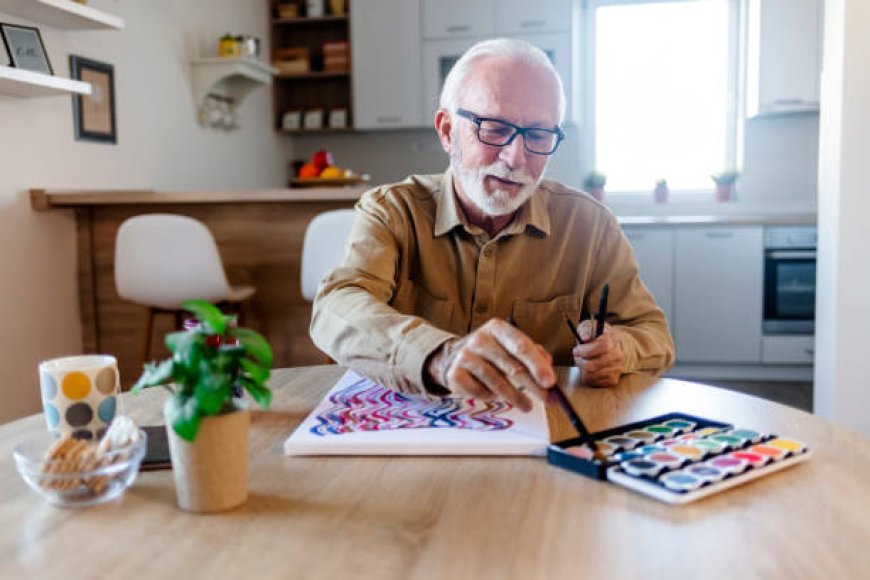Best Hobbies To Keep Seniors Engaged Daily
Discover the best hobbies to keep seniors engaged daily and promote emotional, physical, and mental well-being. Learn how personalized care in Santa Ana enhances hobby-based routines.

Staying active in retirement or while aging at home isn't just about physical health; mental and emotional stimulation is equally important. Seniors who take part in meaningful hobbies often report lower levels of depression and anxiety, better cognitive performance, and increased satisfaction in daily life. The best hobbies also help seniors maintain fine motor skills, boost memory, and encourage creativity. Whether living independently or receiving support, a consistent hobby routine helps build positive habits that benefit long-term well-being and personal growth.
How In-Home Care Supports Meaningful Routines
For seniors who may struggle with mobility or chronic health conditions, assistance at home can make hobby participation more accessible. Services like in-home universal healthcare in Santa Ana offer personalized support, ensuring older adults can safely and comfortably engage in their daily interests. Caregivers can help seniors set up art supplies, guide them through light exercises, or accompany them on walks or garden visits. This one-on-one support ensures hobbies are integrated into care plans, making engagement a seamless and joyful part of daily living.
Gardening: Nurturing Life and Mind
Gardening is one of the best hobbies for seniors because it blends physical activity with mental stimulation. Tending to plants, flowers, or even small indoor herb gardens allows seniors to experience the joy of nature and take on a sense of responsibility. Gardening has been shown to reduce stress and improve mood, while also promoting movement and exposure to fresh air and sunlight. Its a hobby that can be easily adapted to different ability levels, making it ideal for seniors with varying degrees of mobility.
Arts and Crafts: A Creative Outlet for Expression
Painting, knitting, scrapbooking, and other crafts are excellent ways to nurture creativity and self-expression. These hobbies also support fine motor skills and hand-eye coordination. Arts and crafts offer emotional outlets, allowing seniors to process feelings through color, design, and creation. Participating in group craft activities or sharing creations with family adds a social dimension. For seniors receiving in-home care, caregivers can assist by organizing materials and providing a safe and comfortable environment for creativity.
Music and Singing: Soothing and Stimulating
Listening to music, playing instruments, or singing can provide both cognitive stimulation and emotional comfort. Music is one of the best hobbies for seniors because it activates multiple areas of the brain and can evoke strong, positive memories. For those living with dementia or Alzheimers, music therapy is potent. Singing familiar songs or playing simple instruments also encourages breath control and rhythm, which are beneficial to respiratory health and coordination. Caregivers and family members can enhance this hobby by sharing playlists or joining in for sing-alongs.
Reading and Audiobooks: Exploring the World from Home
Reading remains a timeless hobby that stimulates imagination, expands knowledge, and improves concentration. Whether it's fiction, memoirs, or daily newspapers, reading keeps the brain engaged. For seniors with visual impairments, audiobooks are a wonderful alternative. Listening to stories helps reduce loneliness and offers relaxation, especially in the evening. As one of the best hobbies for daily mental engagement, reading promotes vocabulary retention, storytelling ability, and continuous learning regardless of physical limitations.
Light Exercise and Movement-Based Hobbies
Hobbies like yoga, tai chi, or gentle stretching help seniors stay physically active while improving balance, flexibility, and circulation. These hobbies support physical health and can be done indoors or outdoors with minimal equipment. Movement-based routines can also be socially engaging when done in a group or with a caregiver. In-home care services ensure seniors perform these exercises safely and regularly, helping reduce the risk of falls and improving overall energy levels.
Puzzles and Brain Games: Keeping the Mind Sharp
Mental stimulation is vital in preventing cognitive decline, and puzzles are among the best hobbies for this purpose. Crossword puzzles, Sudoku, memory games, and jigsaw puzzles encourage logical thinking and concentration. These brain exercises help maintain mental sharpness and may even delay symptoms of dementia. Caregivers can make this a shared activity by introducing new games or assisting with puzzles that suit the seniors current cognitive level. Even simple games can be deeply satisfying and mentally enriching.
Cooking and Baking: Satisfying and Skillful
For seniors who enjoy being in the kitchen, cooking and baking can be incredibly rewarding. Trying new recipes, measuring ingredients, or even making favorite family dishes promotes creativity, independence, and a sense of accomplishment. These best hobbies also engage multiple senses, smell, taste, touch, and sight, providing a full sensory experience. Cooking can be simplified for seniors with mobility limitations by focusing on easy-to-follow recipes or involving them in the planning and preparation stages with help from a caregiver.
Volunteering and Mentoring: Purpose Through Giving Back
Some of the best hobbies for seniors are those that allow them to give back to their community or share their wisdom. Mentoring younger individuals, tutoring, or volunteering (even remotely) provides a sense of purpose and connection. These activities build self-worth and emotional well-being, especially for seniors who miss the structure and interaction that a former career provided. Opportunities can be found through local senior centers, schools, or online platforms that match seniors with volunteer roles suited to their skills and interests.
Conclusion
Incorporating the best hobbies into a seniors daily routine fosters joy, mental clarity, and emotional strength. From gardening and crafts to music and mentoring, each activity provides a unique benefit that contributes to holistic well-being. With support from loved ones or professional caregivers, these hobbies can become a core part of everyday life. They offer more than just entertainment; they bring meaning, satisfaction, and a renewed sense of identity to seniors in every stage of aging.




































